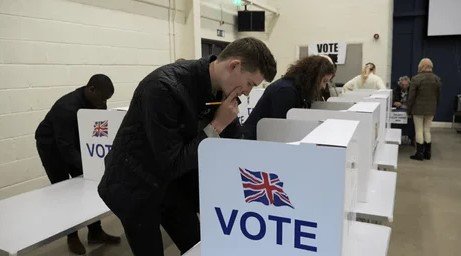In Georgia, Democrats are pushing hard to win two seats on the Public Service Commission in the November 4, 2025, election, framing the race as a fight against soaring electricity bills. Republicans, led by Governor Brian Kemp, are rallying party supporters to keep control, warning that Democratic wins could disrupt energy policies and raise costs even more.
Race Draws Big Money and Attention
This election for utility regulators has turned into a high-stakes battle, with both sides pouring in millions. Democrats see a chance to break the all-Republican hold on the five-member commission, which oversees electricity rates for millions of Georgians.
Georgia Power customers have faced six rate hikes in recent years, driven by natural gas costs and projects like the new nuclear reactors at Plant Vogtle. A typical household now pays over $175 monthly, up from previous levels, according to recent data.
Republicans point to a three-year base rate freeze approved in July 2025 as a win for consumers. But bills could still climb next year to cover nearly $1 billion in storm damage from Hurricane Helene in 2024.
The race is statewide, but candidates are tied to districts. Incumbent Tim Echols in District 2 faces Democrat Peter Hubbard, a green energy advocate. In District 3, Kemp-appointed Fitz Johnson battles Democrat Alicia Johnson, a health care consultant.
Spending has shattered past records. Georgia Conservation Voters Action Fund plans to invest over $2.2 million to back Democrats. Kemp is dipping into his funds to support Republicans, though exact amounts remain undisclosed.
Electricity Bills Fuel Voter Anger
Rising power costs are at the heart of Democratic campaigns. Nationwide, residential electric prices jumped 5.2% from July 2024 to July 2025, per the U.S. Energy Information Administration. In Georgia, bills have climbed steadily, hitting working families hard.

Democrats argue the Republican-led commission has favored utility profits over ratepayers. Georgia Power reported billions in profits last year, yet rates increased 12% due to fuel costs.
Peter Hubbard often asks voters if they want bills that feel like car payments. He pushes for more renewable energy to stabilize costs long-term.
Alicia Johnson focuses on affordability, criticizing past hikes that added up to $516 more per year for some households.
Republicans counter that Democratic policies, like aggressive green mandates, would shut down natural gas plants and drive up prices. Fitz Johnson calls it a “Green New Deal” threat to families.
Tim Echols defends the commission’s record, highlighting reliable power during storms and investments in diverse energy sources.
Key Candidates and Platforms
Voters face clear choices between incumbents and challengers. Here’s a quick look at the contenders:
| District | Republican Candidate | Democratic Candidate | Key Issue Focus |
|---|---|---|---|
| 2 | Tim Echols (Incumbent) | Peter Hubbard | Green energy vs. reliability |
| 3 | Fitz Johnson (Appointed) | Alicia Johnson | Rate freezes vs. affordability |
Echols, a long-time commissioner, emphasizes balanced energy mixes including nuclear and solar. Hubbard advocates for faster clean energy adoption to cut costs.
Johnson, the Republican, stresses party loyalty and warns of higher bills under Democrats. His opponent, Alicia Johnson, promises to prioritize consumer protection and equitable rates.
Both Democrats pledge to lower bills by scrutinizing utility spending. Republicans vow to maintain low taxes and reliable service without radical changes.
Broader Implications for Georgia Energy
This election could reshape Georgia’s energy future. If Democrats win, they might push for more solar and wind power, aligning with national trends toward renewables.
Georgia ranks high in solar production, but critics say the commission has slowed progress. A Democratic shift could accelerate clean energy, potentially creating jobs but raising transition costs.
Republicans warn of grid instability if natural gas is phased out too quickly. They highlight how the commission navigated recent hurricanes, keeping lights on for most.
Voter turnout could decide it. Early voting started strong, with Democrats hoping frustration over bills drives people to polls.
Other states like New Jersey and Virginia are debating similar issues in their 2025 races, showing energy costs as a growing political flashpoint.
Challenges and Criticisms from Both Sides
Democrats accuse Republicans of letting Georgia Power profits soar while approving hikes. One group launched ads targeting GOP votes for rate increases.
Republicans flip the script, claiming Democrats would impose costly environmental rules. Governor Kemp rallies supporters in key areas, urging votes to protect conservative energy policies.
Public awareness is low, with many unaware the commission is elected. Campaigns use door-knocking and ads to educate voters.
Key concerns include:
- Storm recovery costs adding to bills.
- Balancing fossil fuels with renewables.
- Ensuring fair rates for low-income households.
Hubbard denies claims Democrats would raise costs, pointing to recent Republican-approved increases.
What Voters Need to Know Before November 4
The election is November 4, 2025, with early voting underway. Georgia is one of few states electing utility regulators, giving voters direct say over power bills.
To vote, check registration status and find polling places. Focus on how candidates plan to handle rate requests from utilities.
Analysts predict close races, especially if turnout favors Democrats in urban areas. A split commission could lead to more debates on energy decisions.
This vote matters for everyday costs. Rising bills affect budgets, from families to businesses.
Share your thoughts on this election in the comments below. Have rising power bills impacted you? Let others know by sharing this article on social media to spread awareness.
